Prof Verena Briner, MD, FACP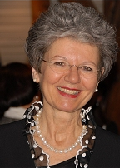
ESIM Director
Head Department of Medicine
Luzerner Kantonsspital
CH 6000 Luzern 16
Switzerland
E-mail: v.a.briner[ät]bluewin.ch
Does this patient have an impaired immune system?
There are congenital and acquired forms of immunodeficiency syndromes. Adult patients with frequent pulmonary infection may have various causes such as chronic bronchitis, bronchiectasis, aspiration, etc. However, some may have no or very low production of IgG. The lecture is focusing on those cases who may benefit from immunoglobulin substitution.
PD Dr Christoph Henzen, MD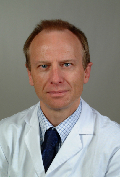
ESIM Co-Director
Chefarzt Medizin
Department of Medicine
Luzerner Kantonsspital
CH 6000 Luzern 16
Switzerland
E-mail: christoph.henzen[ät]ksl.ch
Prof Ramon Pujol Farriols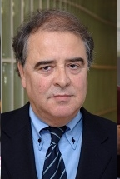
President European Federation of Internal Medicine EFIM
Past President, Spanish Society of Internal Medicine
Department of Internal Medicine
Hospital Universitari de Bellvitge
University of Barcelona
08907 Hospitalet de Llobregat.
SPAIN
E-mail: ramon.pujol[ät]bellvitgehospital.cat
Lecture 1 and
Chair, Clinico-Pathological Conference: Macroscopic autopsy findings
Dr Werner Bauer MD FEFIM FACP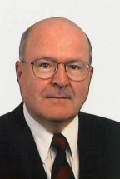
Past-President, European Federation of Internal Medicine EFIM
President Swiss Institute of Education (SIWF)
Lecturer in Internal Medicine
University of Zurich Medical School.
Switzerland
E-mail: werner.bauer[ät]hin.ch
Lecture 1: ‘Professional Issues facing Internal Medicine in Europe’
Health reform discussions revolve around how best to achieve the goals of improving quality, increasing the access to care, and cost containment. In the current health reform debate, little attention is paid to how medicine is currently taught and practiced. Internal Medicine does appreciate that the fundamental tenets of health arise from understanding the interaction among genomics, the external environment, and behaviour. Modern medicine often neglects this comprehensive model and treats disease in isolation, without taking into account the dynamic, integrative systems in the human body. I.M. can revive the essential approach in medical education and promises greater precision in diagnosis, opportunity for earlier intervention, risk-based prevention, and individualization of care.
Dr Shirley P Rigby MD BSc MBBS MRCP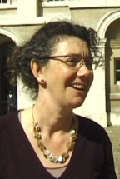
Consultant in General Medicine (Rheumatology)
Warwick Hospital
Lakin Road
Warwick CV34 5BW England
E-mail: Shirley.Rigby[ät]swft.nhs.uk
Lecture 3 and Workshop 2: ‘Oral Presentation Skills for the Internist’
By the end of this lecture you will be able to:
- Define the characteristics and structure of a lecture;
- List the indications for, and demonstrate interactive strategies;
- Use the rules of good audiovisual presentations to produce effective visual aids;
- Apply these concepts to your own presentations.
Prof Maria Domenica Cappellini MD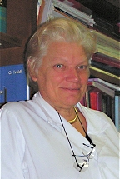
President elect European Federation of Internal Medicine
Dipartimento Medicina Interna
Ospedale Maggiore Policlinico Padiglione Granelli
Via Sforza 35
20122 Milano
Italy
E-mail: maria.cappellini[ät]unimi.it
Lecture 4: Porphyrias at a glance: diagnosis and treatment.
Porphyrias are a group of eight rare inherited metabolic disorders of heme biosynthesis pathway. Porphyrias are still underdiagnosed, although examination of urine and plasma are first-line tests for detecting excess porphobilinogen or heme precursors in suspected patients. Diagnosis, particularly for the acute forms, is essential to avoid precipitating factors and the use of triggering drugs. Mutation screening of family members is recommended to identify presymptomatic carriers and to prevent acute attacks. The therapeutic approach should be appropriate regarding specific forms of porphyria and treatment should be started promptly.
Prof Stefan Lindgren MD PhD FACP FRCP FEFIM (hon) 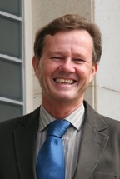
Professor of Medicine
President World Federation for Medical Education (WFME)
Senior Consultant in Gastroenterology
Lund University
Malmö
Sweden
E-mail: stefan.lindgren[ät]med.lu.se
Lecture 5: Evaluation of patients with pathologic liver function test
Liver diseases are in more than 80% of cases diagnosed as a consequence of findings of elevated liver function tests. They may have been ordered due to suspicion of liver disease, or as part of a more general investigation. It is important to have a structured approach to these patients; to diagnose significant liver diseases, particularly where early treatment strongly influences the prognosis, and to avoid extensive investigations and follow-up in patients with drug or alcohol related liver disease and steatosis related to over-weight. In addition to etiological diagnosis, evaluation of the stage of liver disease and potential complications is necessary to plan treatment and follow-up.
 Prof Marco Maggiorini
Prof Marco Maggiorini
Professor of Intensive Care Medicine
University Hospital
CH 8091 Zurich
Switzerland
E-mail: marco.maggiorini[ät]usz.ch
Lecture 6: High altitude, high/low temperature
By the end of my lecture you will be able to
- Understand the pathophysiology of high altitude illness, including acute mountain sickness, high altitude cerebral edema and high altitude pulmonary edema, and illness caused by extreme environmental conditions such as cold and heat.
- Define and recognize symptoms and signs of acute mountain sickness and high altitude cerebral and pulmonary edema.
- Define and recognize symptoms and signs caused by cold and heat stress.
- Recommend preventive measures and treat high altitude illness and injuries caused by cold (moderate to severe hypothermia, frostbite) or heat (heat stress, heat stroke).
 Prof Dr Steven Vanderschueren
Prof Dr Steven Vanderschueren
General internal medicine
University hospital Leuven
Herestraat 40
3000 Leuven
Belgium
+32 16 34 42 75
E-mail: steven.vanderschueren[ät]uzleuven.be
Lecture 7: Diagnostic approach to fever of unknown origin
FUO represents a great diagnostic challenge. Over 200 disorders may be responsible and the cause may remain obscure after a thorough search.
The aim of this lecture is to provide an update of the definition of and the diagnostic approach to FUO.
Dr Dror Dicker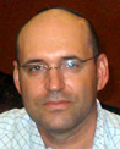
President of the Israeli Sociaty of Internal Medicine
Head of Internal Medicine Department D & Obesity Clinic
Hasharon Hospital – Rabin Medical Center
Petach-Tikva
Israel
E-mail: daniel3[ät]013.net
Lecture 8: Metabolic syndrome from controversies to consensus
My lecture will focus on the definition, etiology, epidemiology, pathophysiology and treatment of the metabolic syndrome. We will try together to understand the basis of the controversy in the different definitions and learn the new consensus definition. Main theme will be dysfunctional fat and its metabolic consequences e.g. insulin resistant and atherogenic dyslipidemia. The lecture will be based on case studies and active participation of the class.
Dr Christopher Davidson MB FRCP FESC FACP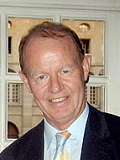
Director of ESIM Brighton
Hon Senior Lecturer
Brighton & Sussex Medical School
Institute of Postgraduate Medicine
University of Brighton
Mayfield House
Falmer, East Sussex BN1 9PH
England
E-mail: davidson[ät]doctors.org.uk
Lecture 9: Atrial fibrillation
Atrial Fibrillation remains a challenge for the internist as well as the cardiologist. When should we anti-coagulate and with what? At what level do the risks of haemorrhage outweigh the risk of stroke in an increasingly elderly patient population? And when should we refer the patient for more complex procedures such as radio-frequency ablation? We will discuss how the latest evidence should govern our decisions through a number of case scenarios.
Dr Palle Holck MD, DipMM, DipSM
Chief physician
Rheumatology og Internal medicine
Sport- og divingmedicine
Stadion Allé 31A
DK-8000 Århus C
Denmark
E-mail: palle.holck[ät]dadlnet.dk
Lecture 10 and Workshop 4: Musculoskeletal medicine
Overuse and overload leads to pain and dysfunction in the locomotion system – in everyday life and in sports medicine. More than 20 pct. of all contact to the health system accounts for pain in the locomotion system. The lecture and workshop demonstrate the method, how to acquire a precise diagnose and conduct targeted treatment of mechanical pain and dysfunctions in the locomotion system exemplified by neck and shoulder problems.
Dr Niels Jensen MD, DipMM
General practisioner
Bag Vænget 1
DK-3400 Hillerød
Denmark
E-mail: niels.jensen[ät]dadlnet.dk
Lecture 10 and Workshop 4: Musculoskeletal medicine.
Lecture and workshop together with Dr. Palle Holck.
Dr Alistair Douglas
Clinical Director Medicine (Planned Care)
Consultant in Acute Medicine and Nephrology
Ninewells Hospital and Medical School
Dundee
DD1 9SY
E-mail: alistair.douglas[ät]nhs.net
Lecture 11: Acute renal failure
Acute renal failure is now known as acute kidney injury. It is common and important as it is associated with a worse outcome irrespective of the initial disease. It can be effectively managed by all general physicians but there are common errors in management as shown in major studies which will be discussed.
Prof Arnaud Perrier, MD 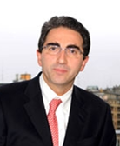
Professor and Head
Department of Internal Medicine, Rehabilitation and Geriatrics
Geneva University Hospitals
Rue Gabrielle-Perret-Gentil 4
CH-1211 Geneva 14
Switzerland
E-mail: Arnaud.Perrier[ät]hcuge.ch
Lecture 12: Pitfalls in medicine
Despite enormous advances in diagnostic tests and imaging, diagnostic errors remain common and jeopardize patient safety. They can be attributed to several well-defined biases in clinical reasoning such as faulty data-gathering or synthesis, premature diagnostic closure, availability heuristic or overconfidence. Through a clinical example, this lecture will detail the most common sources of diagnostic errors to enhance awareness of cognitive errors among the participants and hopefully help them to avoid those mistakes in clinical practice.
Dr Antonio Martins Baptista 
President, Portuguese Society of Internal Medicine
Sociedade Portuguesa de Medicina Interna
Rua da Tobis Portuguesa 8 – 2º
1750-292 Lisboa
Portugal
E-mail: antoniomartinsbaptista[ät]gmail.com
Workshop 1: Internal Medicine in Europe and North of Africa
Dr. Jan Václavík, M.D. Ph.D.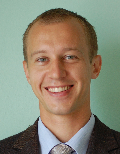
Consultant in cardiology, Head of Hypertension Excellence Centre,
Head of Young internists working group in the Czech Republic
University Hospital Olomouc, Department of Internal Medicine I
I.P. Pavlova 6, Olomouc, 775 20
Czech Republic
E-mail: vaclavik.j[ät]centrum.cz
Workshop 3: Young Internists: life and work in medicine (together with Jan Václavík)
During the Work-Life Balance Workshop we will introduce the European Working Time Directive and discuss its impact on the training of doctors across Europe, european healthcare systems and their budgets and the discrepancy between officially claimed and real working hours of doctors. We will compare the situation in different european countries and compare different solutions to this problem.
Dr Xavier Roux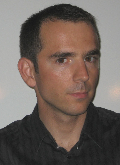
President of french young internists
Consultant in internal medicine and infectious diseases
CHU de Bordeaux
Hôpitaux de Metz
METZ 57000 FRANCE
E-mail: xavier.roux1[ät]hotmail.fr
Workshop 3: Young Internists: life and work in medicine (together with Jan Václavík)
